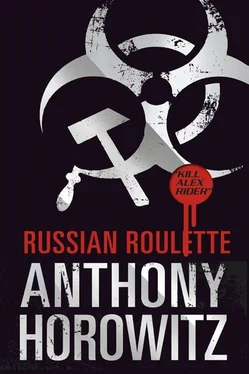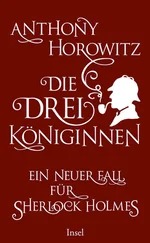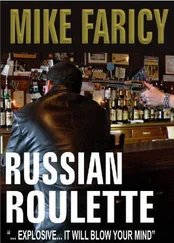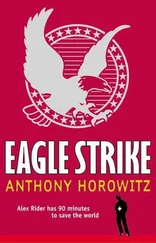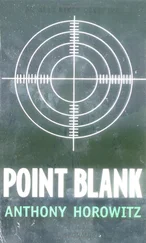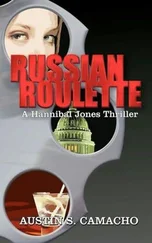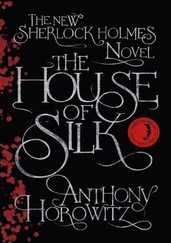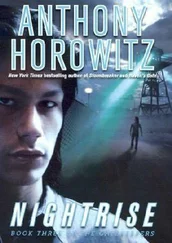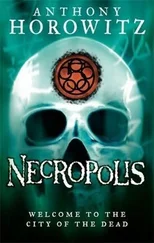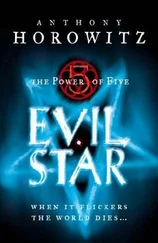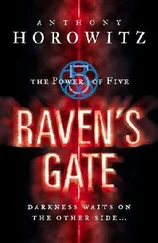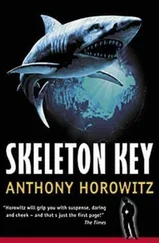We students were all very smart. The girls wore black dresses with green aprons and had their hair tied back with ribbons. The boys looked like little soldiers, with grey uniforms and red scarves tied around our neck, and if we did well with our studies, we were given badges with slogans – “For Active Work”, “School Leader”, that sort of thing. I don’t really remember much of what I learned at school. Who does? History was important… the history of Russia, of course. We were always learning poems by heart and had to recite them, standing to attention beside our desks. There was maths and science. Most of the teachers were women but our headmaster was a man called Lavrov and he had a furious temper. He was short but he had huge shoulders and long arms, and I would often see him pick up a boy by the throat and pin him against the wall.
“You’re not doing well, Leo Tretyakov!” he would boom. “I’m sick of the sight of you. Buck up your ideas or get out of here!”
Even the teachers were terrified of him. But actually, he was a good man at heart. In Russia, we were brought up to respect our teachers and it never occurred to me that his titanic rages were anything unusual.
I was very happy at school and I did well. We had a star system – every two weeks the teachers gave us a grade – and I was always a five-star student, what we called a pyatiorka . My best subjects were physics and maths, and these were very important to the Russian authorities. Nobody ever let you forget that we were the country that had sent the first man – Yuri Gargarin – into space. There was even a photograph of him in the front entrance and you were supposed to salute him as you came in. I was also good at sport and I remember how the girls in my class used to come along and cheer me when I scored a goal. I wasn’t all that interested in girls at this time, which is to say I was happy to chat to them but I didn’t particularly want to hang out with them after school. My best friend was the Leo that I just mentioned and the two of us were inseparable.
Leo Tretyakov was short and skinny with jutting out ears, freckles and ginger hair. He used to joke that he was the ugliest boy in the district and I found it hard to disagree. He was also far from bright. He was a two-star student, a dismal dvoyka and he was always getting into trouble with the teachers. In the end they actually gave up punishing him because it didn’t seem to make any difference and he just sat there quietly daydreaming at the back of the class. But at the same time he was the star of our NVP – military training – classes which were compulsory throughout the school. Leo could strip down an AK47 automatic machine gun in twelve seconds and reassemble it in fifteen. He was a great shot. And twice a year there were military games, when we had to compete with other schools using a map and a compass to find our way through the woods. Leo was always in charge. And we always won.
I liked Leo because he was afraid of nothing and he always made me laugh. We did everything together. We would eat our sandwiches in the yard, washed down with a gulp of vodka that he had stolen from home and brought to school in one of his mother’s old perfume bottles. We smoked cigarettes in the woodland close to the main building, coughing horribly because the tobacco was so rough. Our school toilets had no compartments and we often sat next to each other doing what we had to do, which may sound disgusting but that was the way it was. You were meant to bring your own toilet paper too, but Leo always forgot and I would watch him guiltily tearing pages out of his exercise books. He was always losing his homework that way. But with Leo’s homework – and he’d have been the first to admit it – that was probably all it was worth.
The best time we had together was in the summer, when we would go for endless bicycle rides, rattling along the country roads, shooting down hills and pedalling backwards furiously, which was the only way to stop. Everyone had exactly the same model of bicycle and they were all death traps with no suspension, no lights and no brakes. We had nowhere to go but in a way that was the fun of it. We used our imagination to create a world of wolves and vampires, ghosts and Cossack warriors – and we chased each other right through the middle of them. When we finally got back to the village, we would swim in the river, even though there were parasites in the water that could make you sick, and we always went to the bathhouse together, thrashing each other with birch leaves in the steam room which was meant to be good for your skin.
Leo’s parents worked in the same factory as mine, although my father, who had once studied at Moscow State University, was the more senior of the two. The factory employed about two hundred people, who were collected by coaches from Estrov, Rosna and lots of other places. I have to say, the place was a source of constant puzzlement to me. Why was it tucked away in the middle of nowhere? Why had I never seen it? There was a barbed wire fence surrounding it and armed militia standing at the gate, and that didn’t make sense either. All it produced was pesticides and other chemicals used by farmers. But when I asked my parents about it, they always changed the subject. Leo’s father was the transportation manager, in charge of the coaches. My father was a research chemist. My mother worked in the main office doing paperwork. That was about as much as I knew.
At the end of a summer afternoon, Leo and I would often sit close to the river and we would talk about our future. The truth was that just about everyone wanted to leave Estrov. Outside work, there was nothing to do and half the people who lived there were perpetually drunk. I’m not making it up. During the winter months, they weren’t allowed to open the village shop before ten o’clock in the morning or people would rush in as soon as it was light to buy their vodka; and during December and January, it wasn’t unusual to see some of the local farmers flat on their backs, half covered with snow and probably half dead too after downing a whole bottle. We were all being left behind in a fast-changing world. Why my parents had ever chosen to come here was another mystery.
Leo didn’t care if he ended up working in the factory like everyone else but I had other ambitions. For reasons that I couldn’t explain, I’d always thought that I was different from everyone else. Maybe it was the fact that my father had once been a professor in a big university and that he had himself experienced life outside the village. But when I was watching those planes disappear into the distance, I always thought they were trying to tell me something. I could be on one of them. There was a whole life outside Estrov that I might one day explore.
Although I had never told anyone else except Leo, I dreamt of becoming a helicopter pilot – maybe in the army but if not, in air-sea rescue. I had seen a programme about it on television and for some reason it had caught hold of my imagination. I devoured everything I could about helicopters. I borrowed books from the school library. I cut out articles in magazines. By the time I was thirteen, I knew the name of almost every moving part of a helicopter. I knew how it used all the different forces and controls, working in opposition to each other to fly. The only thing I had never done was sit in one.
“Do you think you’ll ever leave?” Leo asked me one evening, the two of us sprawled out in the long grass, sharing a cigarette. “Go and live in a city with your own flat and a car?”
“How am I supposed to do that?”
“You’re clever. You can go to Moscow. Learn how to become a pilot.”
I shook my head. Leo was my best friend. Whatever I might secretly think, I would never talk about the two of us being apart. “I don’t think my parents would let me. Anyway, why would I want to leave? This is my home.”
Читать дальше
